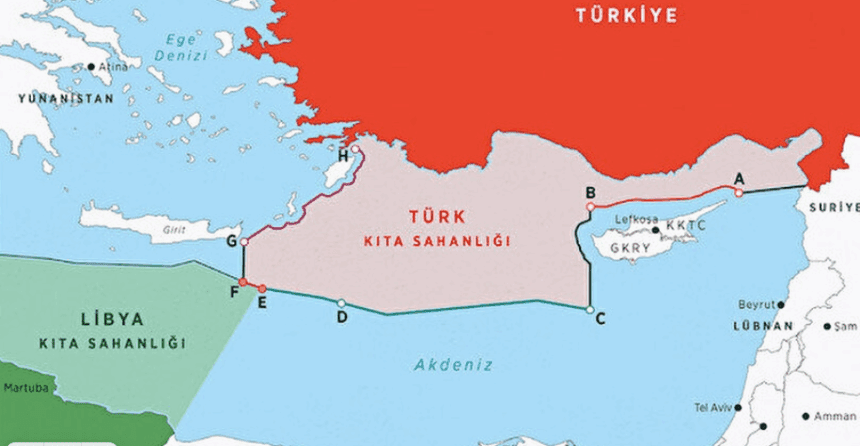Libya’s House of Representatives (HoR) is reportedly moving toward a ratification of the 2019 maritime delimitation agreement signed between Turkey and the Government of National Unity (GNU), according to local media reports published on Sunday. The report, initially posted by the Libya Observer, cited an unnamed deputy suggesting that the vote could be “unanimous.”
The agreement was originally signed in November 2019 between Turkey and the Tripoli-based GNU, which is recognized by the United Nations. However, it has not been ratified by the eastern-based Government of National Stability (GNS), led by Prime Minister Osama Hamad and supported by the HoR and the Libyan National Army (LNA), commanded by General Khalifa Haftar.
The reported shift comes amid renewed discussion over maritime boundaries in the Eastern Mediterranean, particularly following recent criticism from the GNS over Greece’s decision to tender hydrocarbon exploration blocks south of the island of Crete. The GNS described the move as an encroachment on Libya’s maritime rights and emphasized the country’s right to respond to any perceived challenge to its sovereignty.
On Saturday, the GNS issued a formal rejection of Greek statements questioning the legitimacy of the agreement. Libyan Prime Minister Osama Hammad asserted that the Turkey-Libya accord is “internationally legitimate” and falls within the country’s sovereign rights to enter into international agreements. He warned against “provocation and escalation,” emphasizing that Libya reserves the right to respond to any actions perceived as undermining its territorial or political sovereignty.
“The Libya-Turkey cooperation is carried out under international legitimacy and does not violate the sovereignty of any country,” Hammad said, reiterating that Libya’s maritime rights are “nonnegotiable” and must be addressed through recognized international legal frameworks.
The 2019 Turkey-Libya agreement outlines the delimitation of maritime zones between the two countries in the central Mediterranean. It has been the subject of significant international scrutiny, with Greece, the European Union, and several other states arguing that the deal conflicts with the United Nations Convention on the Law of the Sea (UNCLOS). Critics contend that the agreement excludes the maritime entitlement of Greek islands, including Crete, from the delimitation process.
Turkey, which is not a signatory to UNCLOS, maintains that the agreement is consistent with international legal principles and reflects its interpretation of maritime boundary rights. The Tripoli-based GNU has defended the accord as legitimate and within Libya’s sovereign rights.
If the HoR proceeds with ratification, it could mark a notable development in Libya’s internal political landscape and regional maritime diplomacy. It remains to be seen how such a step would impact Libya’s relations with neighboring countries and ongoing efforts to unify state institutions across the country.



